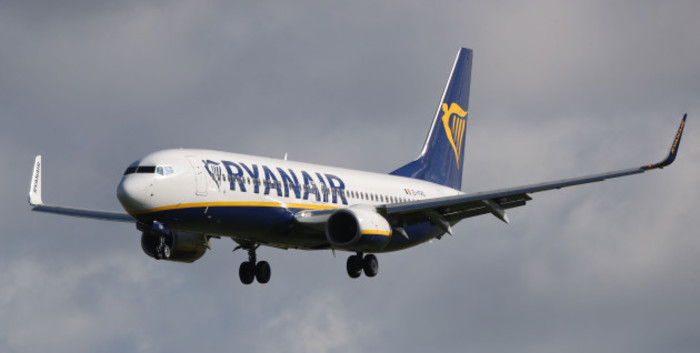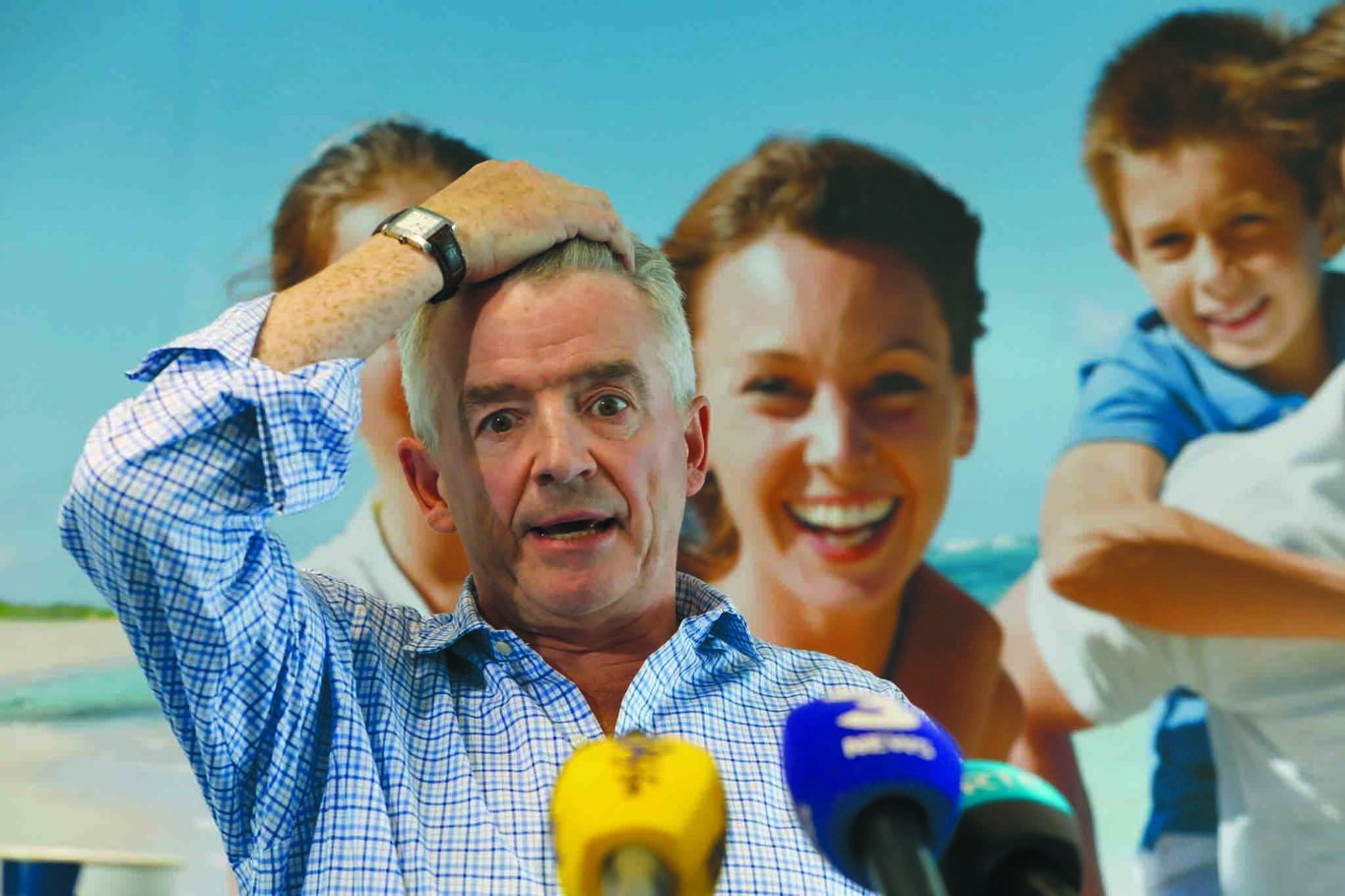Michael O'Leary says Ryanair investors should expect a bumpy ride in the coming month
The aviation chief says the airline is prepared to ‘face down’ any disruption from pilots unions.
RYANAIR BOSS MICHAEL O’Leary has warned investors that 2018 is going to be a bumpy year as the airline continues to hammer out deals with third-party trade unions.
Commenting on the low-cost carrier’s financial results for the three months to the end of December, O’Leary said the company will remain “cautious” throughout the rest of its financial year, which ends in March.
In a bombshell announcement before Christmas, Ryanair said it would reverse a three-decade policy and recognise external pilots and cabin crew unions.
O’Leary said today that while this may “add some complexity to our business”, the airline still expects to hit the 200 million-passenger target by 2024.
However, the Ryanair chief told investors this morning to prepare for “some localised disruptions and adverse PR” between now and March as it looks to sign off deals with pilots unions.
While the airline managed to reach an agreement with the British Airline Pilots Association, it has had no such luck yet with the Irish Airline Pilots’ Association (IALPA) and accused it – and other European unions – of wasting time at the negotiation table.
The airline urged Irish pilots on Friday to bypass the union – which represents Dublin-based Ryanair and Aer Lingus pilots – and accept a 20% pay hike offer.
O’Leary warned investors today that “unions representing competitor airlines will wish to test our commitment to our low-cost, high pay/high productivity model to disrupt our operations”.
He assured his backers that Ryanair is prepared to “face down any such disruption”.
‘Disruptions’
Nevertheless, Ryanair’s financial performance in the three months to the end of December wasn’t affected by its controversial decision to cancel over 20,000 flights in September.
The airline recorded a profit of €106 million for the three-month period, a 12% increase on 2016′s figure.
It raked in just over €1.3 billion in sales during the third quarter, a 4% increase on the same period the year before. It carried an extra 1.6 million passengers during the three-month period, 30 million in total, and its flights were 96% full.

O’Leary expects to deliver an 8% increase in full-year traffic in March and carry 130 million passengers this year. He said the company expects to report a profit of €1.4 billion.
However, he cautioned that this guidance “depends heavily on the absence of union disruptions, unforeseen security events and close-in Easter bookings”.
Although Ryanair has yet to finalise its budget for its next financial year, O’Leary isn’t feeling too optimistic about the next 12-month period.
“Costs will rise next year as our fuel bill increases by over €300 million and a further €100 million,” he said.
“The lack of clarity on Brexit continues to overhang fares and pricing on routes to/from the UK. We would, even at this early date, urge extreme caution on investor and analyst assumptions for fares in 2019.”
Investigation
Separately, the UK’s Civil Aviation Authority (CAA) announced yesterday that it will investigate airline seating arrangements amid “confusion” about allocated seating.
The British aviation watchdog published research showing that groups travelling with Ryanair were the most likely to be seated separately if they hadn’t paid for their seats.
It said it will now seek information from airlines “about their allocated seating practices to find out whether consumers are being treated fairly”.
The question of allocated seating was raised last year in relation to Ryanair with passengers who hadn’t paid for seats saying they were randomly assigned seats far from family members and partners despite checking in at the same time.
Ryanair said at the time that this was due to an increasing number of passengers paying for allocated seating and choosing aisle and window seats.






